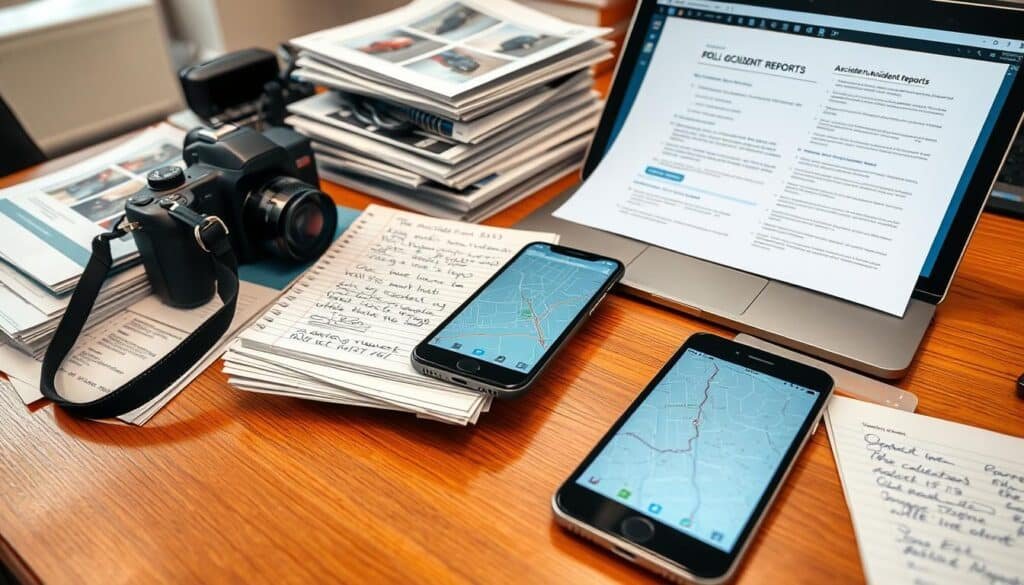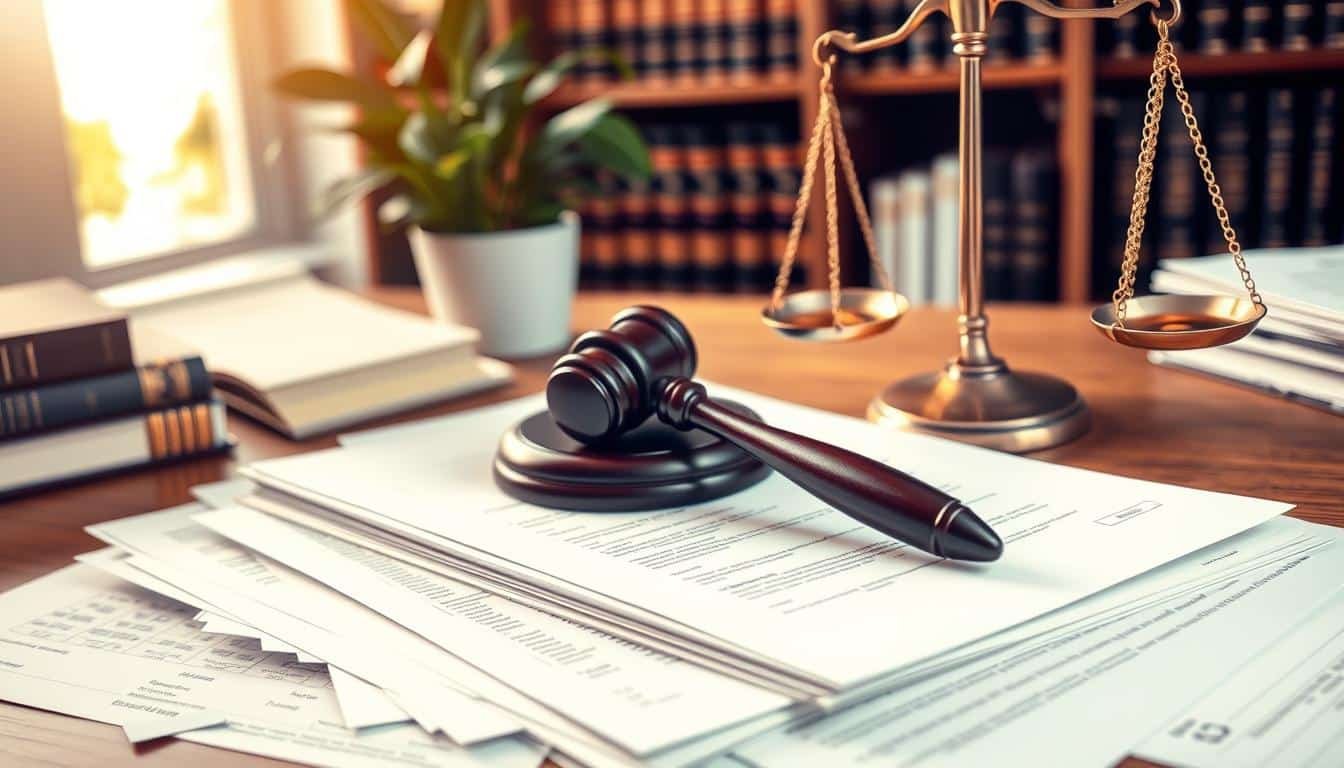Personal Injury Claim Tips can be tricky, but knowing the right steps can help you get the most compensation. This article shares important tips for handling your claim. From keeping evidence to dealing with insurance, these tips can help you get fair compensation for your injuries.
Also Read: Essential Tenant Rights Information Every Renter Should Know
Key Takeaways
- Thorough case preparation can maximize damages even if a personal injury case never reaches the trial stage.
- Rejecting initial settlement offers can lead to higher compensation in personal injury cases.
- Including future damages as part of a claim can make up the majority of the losses in some instances.
- Hiring an attorney can help navigate the legal process and pursue the maximum compensation possible.
- Prompt filing of a personal injury case is important to avoid missing the statute of limitations.
Understanding the Importance of Personal Injury Claims
Personal injury claims help people get compensation for harm caused by others. They cover many types of damages, like financial losses and how the injury affects someone’s life. Knowing how to handle these claims is key.
Also Read: How To Navigate Startup Legal Requirements Successfully?
Types of Compensable Damages
Claims can seek money for different damages. These include:
- Economic damages, like medical bills, lost income, and care costs
- Non-economic damages, for pain, emotional distress, and missing out on life
- In some cases, punitive damages are given to punish and prevent future harm
Role of Evidence in Claim Success
The strength of a claim depends on the claim evidence. This includes medical records, witness statements, and bills. It’s important to collect and organize this evidence well.
Time Limitations and Legal Requirements
Knowing the statute of limitations is crucial. It’s the time limit for filing a claim. Missing this deadline can mean losing the right to compensation. Also, understanding the legal steps is key for a successful claim.
Understanding damages, evidence, and time limits helps people make smart choices. It prepares them to effectively pursue their personal injury claims.
Also Read: How To Protect Your Rights With Criminal Defense Advice?
Essential Documentation Strategies for Your Claim

Getting your personal injury claim right starts with good documentation. From the accident scene to your medical treatment, each step is key. It can make your case stronger and help you get more compensation.
First, take photographs of the accident location, your injuries, and any property damage. These pictures can show what happened and how bad your injuries are. Also, get contact information for any witnesses. Their stories can back up your claim.
- Get a copy of the police report from the incident. This official document is important accident documentation and claim evidence.
- Keep a detailed injury journal. It should track your injuries, how they affect your life, and any costs. This injury records is strong claim evidence.
- Make sure to keep medical records up to date. Include doctor’s notes, treatment plans, and all related expenses. These accident documentation show how serious your injury records are.
By carefully documenting your personal injury claim, you can improve your chances of getting fair compensation.
Also Read: How Family Law Consultation Can Help Your Case?
| Documentation Type | Purpose | Impact on Claim |
|---|---|---|
| Photographs | Preserve visual evidence of accident scene and injuries | Strengthens accident documentation and claim evidence |
| Witness Statements | Corroborate the circumstances of the incident | Enhances claim evidence |
| Police Report | Official record of the accident | Provides crucial accident documentation |
| Injury Journal | Track the progression and impact of injuries | Strengthens injury records and claim evidence |
| Medical Records | Document treatment, expenses, and the extent of injuries | Demonstrates the severity of injury records |
By using these key documentation strategies, you can make a strong personal injury claim. This can help you get the most compensation possible.
Personal Injury Claim Tips for Maximum Results

To get the most from a personal injury claim, you need a solid plan. Start by collecting witness statements and their contact info from anyone who saw what happened. Their stories can back up yours and make your claim stronger.
Also Read: Common Mistakes In Exam Papers: Tips For Success
Keeping detailed medical records is key. Write down every doctor’s visit, treatment, and cost related to your injuries. These records show how serious your injuries are and support your claim for damages.
Also, keep an accident journal. Write about how your injuries change your daily life. This includes how they affect your work, daily tasks, and fun activities. This journal helps prove your claim for non-economic damages, like pain and suffering.
| Key Tip | Benefit |
|---|---|
| Gather Witness Statements | Corroborates your account and strengthens your claim |
| Maintain Detailed Medical Records | Demonstrates the full extent of your injuries and treatment |
| Create an Accident Journal | Documents the impact of your injuries on your daily life, supporting non-economic damages |
By using these tips, you can increase your chances of getting fair compensation for your losses and pain.
Medical Treatment and Its Impact on Compensation

Getting quick and thorough medical treatment is key for health and winning a personal injury claim. It’s important to follow doctors’ advice and go to all needed appointments. This includes physical therapy. A strong medical record is crucial for proving the claim’s value and can greatly affect the compensation you get.
The kind and amount of medical treatment matter a lot in personal injury cases. Tests like x-rays, MRIs, and surgeries show how bad the injury is. Longer treatments mean more serious injuries, which can raise the settlement amount. The cost of medical treatment is a big part of the damages claim, showing the financial loss to the injured person.
Injuries can also hurt your mind and feelings. You might need mental health counseling. The medical treatment for these issues is also part of the claim. Things like ongoing medication, medical devices, and therapy are common in ongoing medical care.
Personal injury lawyers are key in showing how medical treatment affects your claim. They can push for higher settlements based on injury severity and future medical costs.
“The length of time required for recovery from injuries is considered by insurance adjusters as an indicator of the severity of the injury, potentially impacting the settlement amount.”
In short, detailed medical treatment and clear injury documentation are crucial for getting the most compensation in a personal injury claim. The type, length, and cost of medical care greatly affect the settlement amount.
Also Read: Maritime Law: Legal Approaches to Combatting Crime at Sea
Strategic Communication with Insurance Companies
Talking effectively with insurance companies is key to getting the most from your personal injury claim. Knowing how to negotiate and understanding adjuster tactics can help you avoid low offers. This way, you can get the fair compensation you deserve.
Negotiation Techniques
When you’re negotiating, be patient, persistent, and ready. First, read your policy to know your coverage and rights. Don’t take the first offer, as it’s often low. Instead, offer a fair amount based on your claim’s value, backed by evidence and expert opinions.
Common Insurance Adjuster Tactics
Adjusters try to pay less, using tricks like saying your injuries were there before. They might ask for too much paperwork or delay things. Keep records of all talks and stand up for yourself if you see unfair tactics.
Written Communication Best Practices
When writing to insurance companies, be clear, direct, and focused on your case. Avoid emotional words and stick to the facts. Describe the accident, your injuries, and how they’ve affected you. Add supporting documents like medical records and photos. A professional and detailed approach can lead to a better outcome.
FAQs
Q: What are the best tips to maximize your personal injury claim?
A: To maximize your personal injury claim, it’s essential to document everything related to your injury, consult with an experienced personal injury attorney, and keep all medical records and receipts. Additionally, be mindful of the statements you make to insurance companies and focus on building a strong case.
Q: How can I get the compensation I deserve after a personal injury case?
A: To get the compensation you deserve in your personal injury case, hire an experienced personal injury lawyer who can help you navigate the legal process, file a personal injury claim effectively, and negotiate for a fair settlement on your behalf.
Q: What should I do immediately after being injured in an accident?
A: Immediately after being injured in an accident, seek medical attention, document the scene and injuries, collect witness information, and consult with a personal injury attorney to understand the next steps in pursuing a personal injury lawsuit.
Q: How can an experienced personal injury attorney help my case?
A: An experienced personal injury attorney can help you understand your rights, value your claim fully, gather evidence, negotiate with insurance companies, and represent you in court if necessary, all of which can significantly impact the compensation you receive.
Q: What types of personal injury claims can I file?
A: You can file various types of personal injury claims, including car accidents, slip and fall incidents, medical malpractice, and workplace injuries. Each type has specific legal considerations, so consulting with a personal injury lawyer can help clarify your options.
Q: How do I file a personal injury claim?
A: To file a personal injury claim, gather all necessary documentation, including medical records and accident reports, and consult with a personal injury attorney who can assist you in preparing and submitting your claim to the appropriate insurance companies or courts.
Q: What factors can affect the value of my claim?
A: The value of your claim can be affected by several factors, including the severity of your injuries, medical expenses, lost wages, pain and suffering, and the strength of evidence supporting your case. An experienced personal injury lawyer can help you assess these factors.
Q: Are there any tips for maximizing compensation in my personal injury case?
A: Yes, tips for maximizing compensation in your personal injury case include documenting all medical treatments, keeping a detailed record of expenses, not accepting initial settlement offers without consultation, and ensuring you have an experienced personal injury attorney to guide you through the process.
Q: How long do I have to file a personal injury lawsuit?
A: The time limit to file a personal injury lawsuit, known as the statute of limitations, varies by state but generally ranges from one to three years. It’s essential to consult with a personal injury lawyer promptly to ensure you meet any deadlines and protect your rights.
Source Links
- https://www.askadamskutner.com/las-vegas-personal-injury-lawyers/10-tips-maximizing-compensation-personal-injury-case/
- https://helpingthehurt.com/blog/maximize-your-personal-injury-claim
- https://shinerlawgroup.com/7-things-you-need-to-know-before-filing-a-personal-injury-claim/
- https://thenationaltriallawyers.org/article/a-personal-injury-claim-guide-what-to-expect-and-how-to-file/
- https://campuspress.yale.edu/ledger/the-basics-of-personal-injury/
- https://wfirm.com/pro-tips-to-maximize-personal-injury-compensation/
- https://dominguezfirm.com/injury-lawyer/slip-fall-accident/how-to-document-your-injuries-after-an-accident-for-legal-claims/
- https://hartleylawtx.com/blog/maximum-personal-injury-compensation/
- https://www.marquezlawoffices.net/maximizing-personal-injury-damages-tips-for-a-successful-claim/
- https://tcmlawoffice.com/catastrophic-injury/why-medical-treatment-is-important-to-your-personal-injury-claim/
- https://springslawgroup.com/blog/how-does-medical-treatment-affect-your-personal-injury-settlement/
- https://www.mahaneypappaslaw.com/blog/insurance-tactics-used-to-minimize-injury-claims-part-one.cfm
- https://thesuperlawyer.com/dealing-with-insurance-companies/





